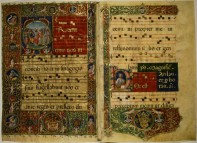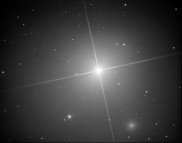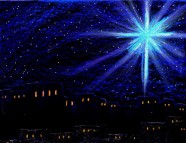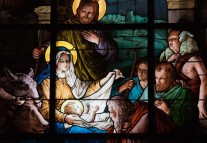O Come All Ye Faithful (Christmas)
Music attributed to a variety of 17th & 18th century sources, John Francis Wade being the name that comes up most prominently. The original Latin ("Adeste Fideles") text likewise is credited to different monastic orders all over Europe. The English text now commonly sung was composed in 1841 by British priest Frederick Oakley.
O Come, O Come Emmanuel (Christmas)
A carol originally with Latin text set to a Gregorian chant dating back to the 9th Century AD. Translated into English by the great exiled British scholar/missionary John Mason Neale in the 1850's. Each verse of the original carol is one of the 7 "O Antiphons" (O come...) ceremonially recited during Advent Vespers leading up to Christmas. Each Antiphon heralds the coming Savior/Messiah, addressing Him by a different name in each verse, Emmanuel ...
O Holy Night (Christmas)
"Cantique De Noel," originally a poem entitled "Minuit, chretiens" (Midnight, Christians) by Cappeau, set to music in 1847 by French composer Adolph Adam (1803-1856). Translated into the familiar English version by Boston Unitarian minister and influential classical music critic John Sullivan Dwight (1813-1893) in 1855.
O Little Town Of Bethlehem (Christmas)
1865 poem by Philadelphia Episcopal priest & rector Phillip Brooks(1835-1893), inspired by a visit to Bethlehem, set to music by his church organist Lewis Redner.
Panis Angelicus (Christmas)
"Bread of Angels," celebration of transubstantiation by St. Thomas Aquinas (1225-1274) for the Feast of Corpus Christi, set to music in 1872 by French organist/composer Cesar Franck(1822-1890).
Silent Night (Christmas)
Original German words ("Stille Nacht," 1816) by Austrian priest Joseph Mohr, set to music by schoolteacher Franz Gruber, first performed in Oberndorf near Salzburg, Christmas Eve, 1818. English words(1859) by American Episcopal priest John Freeman Young. Translated into nearly 150 languages.






